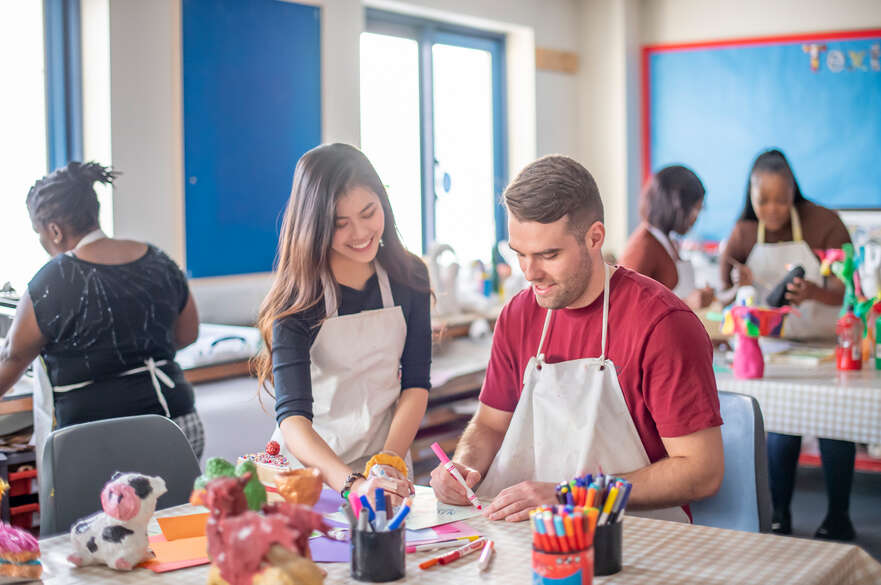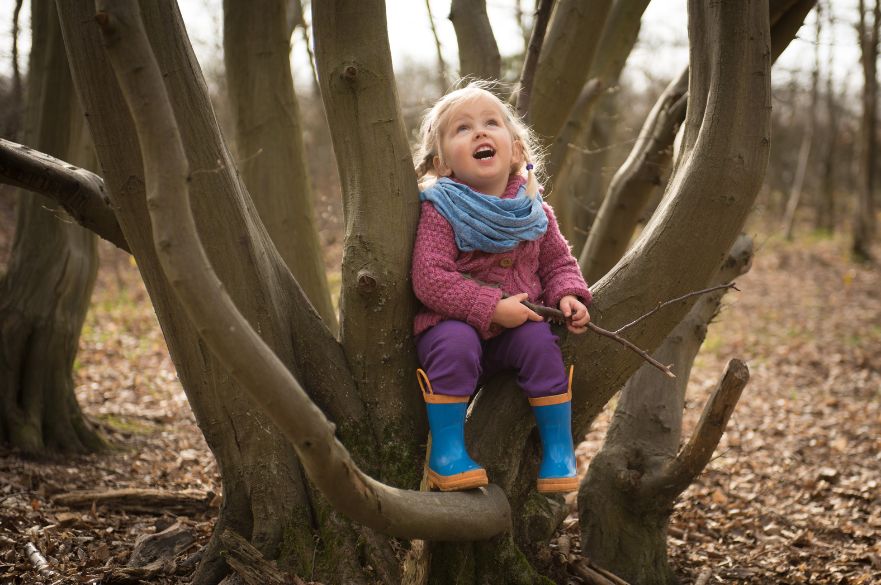Role
Philippa Thompson is a Senior Lecturer and Course Lead in the Nottingham Institute of Education, School of Social Sciences at Nottingham Trent University (NTU). She is a Senior Fellow of Advance HE. Philippa has nearly 20 years’ experience working in Higher Education across education and early childhood studies.
Career overview
Philippa joined NTU in June 2024 following 18 years as both a Principal and Senior Lecturer at Sheffield Hallam University. She qualified as an early year’s teacher (3-8yrs), working in schools in Sheffield before moving to teach in outdoor education in Australia and thereafter a Hong Kong Chinese kindergarten and an International School on Hong Kong Island.
On moving back to the UK, Philippa worked as a teacher in a family and community services family centre and also senior leadership roles in Primary schools before moving on to become an early year’s adviser and community teacher for Sheffield local authority, based in Sure Start and Nursery School provision. As a community teacher, Philippa worked to develop many parent groups across schools and settings that supported parent confidence and relationship with their children alongside training teachers, practitioners in the PVI sector and childminders.
Philippa then accepted a senior lecturer role at Sheffield Hallam University, teaching on and developing early childhood studies before becoming a Principal Lecturer with responsibility for employability and Business and Enterprise across the Institute of Education. Philippa has extensive experience of external examining, supporting the development of innovative practice and was a University Inspirational Teaching Award Winner.
Externally, Philippa is co-chair of the Early Childhood Studies Degrees Network leading on the support of all member universities to develop their programmes and engage students in becoming advocates for the sector. She is a member of the Coalition for Early Years on the Birth to Five Matters Non-Statutory Guidance for the EYFS and chaired the QAA ECS Subject Benchmark Statement Review. Philippa sits on many national early childhood groups and is passionate about policy and practice to improve quality.
Philippa is a published author on texts focused on co production with parents and families, rights, participation, play and outdoor learning. Current doctoral research considers the hidden voice of parents of children with food allergies and anaphylaxis in early childhood. She has presented research both nationally and internationally.
Research areas
Philippa’s research interests have a strong focus on parents and families with an emphasis on co production, rights, and participation. Her current doctoral research is entitled ‘The hidden voice: parental experience of child anaphylaxis in ECEC settings.’ Philippa has also been involved in a range of funded research projects including large evaluation projects. She has a keen interest in narrative inquiry and autoethnography.
External activity
- Co-Chair - Early Childhood Studies Degrees Network www.ecsdn.org
- Chair of QAA Subject Benchmark Statement Review Early Childhood Studies Degrees Subject Benchmark Statement - Early Childhood Studies (qaa.ac.uk)
- External Examiner, Stranmillis University College Belfast, BA (Hons) /MA Early Childhood Studies.
- Early Years Coalition Committee/ Contributor to Birth to Five Matters
- Pearson HND Module Writer - BTEC Higher Nationals Early Childhood Education and Care
- Siren Films consultant
- School Governor – Grace Owen Nursery School
- Routledge book reviewer
- Working and Implementation Groups – EYTDA
- DfE working groups.
Publications
Bell, G., Borland, S., Summerscales, R. & Thompson, P. (2024) Digital Dilemmas in the Early Years. In Leask, M. & Younie, S. (Eds) Teaching and learning with technologies in the primary school. London: Routledge Taylor Francis.
Thompson, P. (2024) Play in Early Childhood (2nd ed). In D. Fitzgerald, & H. Maconochie, (Eds) Early Childhood Studies. London: Sage
Thompson, P. and Simmons, H. (Eds) (2023). Partnership with Parents in Early Childhood Today. London: Sage.
Thompson P. (2023) Partnership with Parents and Caregivers: Competency Seven. In Bradbury, A. Musgrave, J. & Perkins, H. (Eds) A Practical Guide to Early Childhood Studies Graduate Practitioner Competencies. (87-97) London: Learning Matters.
Thompson, P. (2022) Tina Bruce. In A. Bradbury and R. Swailes (Eds) Early Childhood Theories Today. (99-111). London: Sage.
Thompson, P. (2018). Supporting Play. In D. Fitzgerald and H. Maconochie (Eds), Early Childhood Studies: A Student’s Guide (131-144). London: Sage.
Thompson, P., Bulloss, J. and Vessey, S. (2017). If you go down to the woods today: young children learning outdoors. In G. Goodliff, N. Canning, J. Parry, and L. Miller, (Eds.), Young Children's Play and Creativity: Multiple Voices, (247-256). London: Routledge.
Levy, R. and Thompson, P. (2015) Creating ‘buddy partnerships’ with 5- and 11-year-old-boys: a methodological approach to conducting participatory research with young children. Journal of Early Childhood Research 13 (2), 137-149, first published on July 15, 2013.
Thompson, P. (2012) Play in Early Years Education.In: J. Kay, (Ed), Good Practice in The Early Years, 3rd ed. (pp 13-44)London: Continuum.
Thompson, P. (2008) Telly Addicts: How TV and film can be good. Practical Pre School, 1 (91), i-ii.
Thompson, P. (2004) Using Film and Television. Practical Pre School 1 (46), xix-xx.
BRITISH FILM INSTITUTE PRIMARY EDUCATION WORKING GROUP (2003) Look again: A Teaching Guide to using Film and Television with 3–11-year-olds. London, BFI/ DfES.
Marsh, J. and Thompson, P. (2002) Media Boxes: How video viewing can help develop literacy skills. Early Years Educator 3 (12), i-viii.
Marsh, J. and Thompson, P. (2001) Parental Involvement in literacy development: using media texts. Journal of Research in Reading, 24 (3), 266-278.
Sector comment online:
https://www.earlyyearseducator.co.uk/features/article/focus-from-minecraft-to-minefield-navigating-technology-use-in-early-years-education https://doi.org/10.12968/eyed.2023.24.5.30
Changing Lives - What do ECS degrees and the Early Childhood Graduate Practitioner Competencies mean for career progression? https://doi.org/10.12968/nuwa.2023.3.44a
Striving to be Heard -The work of the Early Childhood Studies Degree Network (ECSDN) to influence policy has never been more important than now https://doi.org/10.12968/eyed.2020.22.4.7
https://www.ecsdn.org/podcast/dr-helen-simmons-interviewing-philippa-thompson-birth-to-five-matters/
Blogs:
https://www.sirenfilms.co.uk/technology-and-the-early-years/
https://www.parentkind.org.uk/blog/10599/Working-from-home-learning-from-home-Behind-Closed-Doors
Course(s) I teach on
-
 Undergraduate | Full-time
Undergraduate | Full-timehttps://www.ntu.ac.uk/course/education/ug/ba-hons-primary-education
-
 Undergraduate | Full-time
Undergraduate | Full-timehttps://www.ntu.ac.uk/course/education/ug/ba-hons-early-childhood-studies
-
 Postgraduate taught | Full-time / Part-time
Postgraduate taught | Full-time / Part-timehttps://www.ntu.ac.uk/course/education/pg/pgce-early-years-initial-teacher-training
